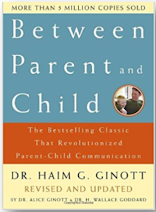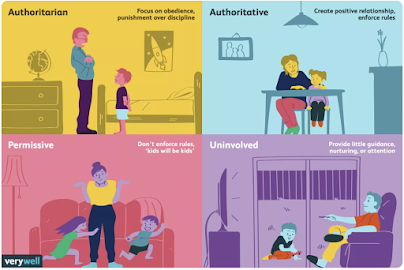Guiding Children Through Loving Discipline
- The beginning of wisdom is listening.
- Do not deny your child's perceptions.
- Instead of criticism, use guidance. State the problem and possible solution.
- When angry, describe what you see, what you feel, and what you expect, starting with the pronoun "I."
- Praising.
- Learn to say "no."
- Give children a choice and a voice in matters that affect their lives.
Dr. Ginott says that we should be "strict when dealing with children's misbehavior...but all feelings, wishes, desires, and fantasies are permissible" (Ginott, pg 196). We teach our children that they are allowed all of their feelings, but that they are responsible for the way that they choose to express those feelings. When we see a misbehavior, we first state what we see and what we feel. Then we state our expectations.
For example, if we see our son hit his younger brother we can say, "I'm angry and sad. We don't hit people. Our hands are used for kindness, not for hurting." This wording isn't demeaning or shaming the child. It's showing him the emotions that are caused by the action, how it effected someone else, and what we expect to happen in the future. We can incorporate appropriate discipline when needed. If a child has a problem with hitting we can say, "I can see that it's difficult to remember not to hit when you are feeling angry. I understand why it's hard. While you are working to remember to use your words instead of your hands I'm going to be next to you as you play with your brother. If I'm not next to you, you need to come and ask me if you can play with him. When you can show me that you know how to use your words when you're angry I can start giving you space while you play again."
The consequence relates to the situation, and teaches the child while also validating his emotions. It's important to remember to avoid shaming, attacking, and insulting the child while you are correcting him. That only creates resentment and greater anger.
Reference:
Ginott, H. G., Ginott, A., & Goddard, H. W. (2004). Between parent and child. New York: Random House.



Comments
Post a Comment